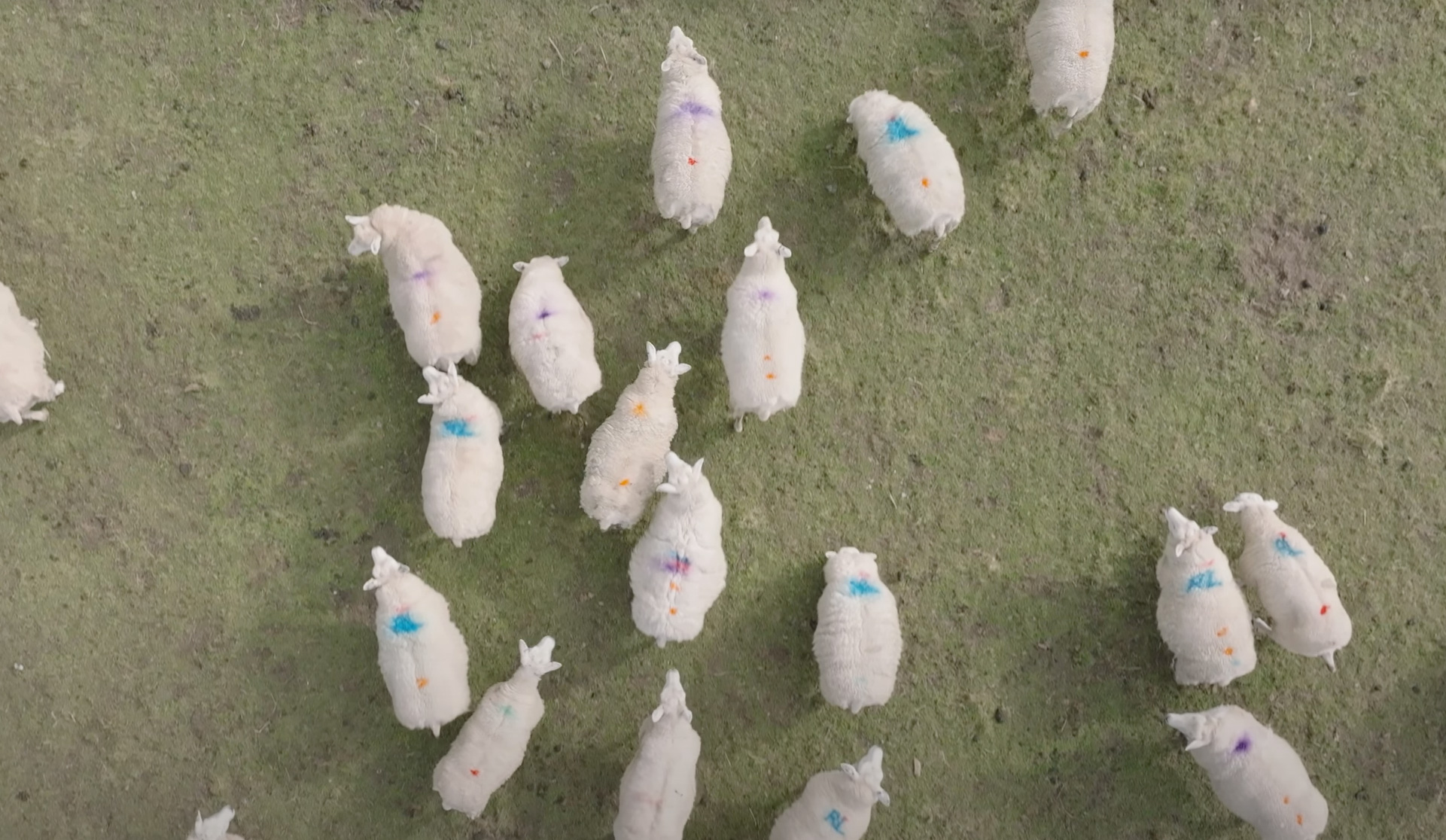A collaboration between Vector Homes Ltd and Wool Insulation Wales Ltd, the project sought to harness the natural insulating properties of sheep wool, by developing a low-carbon, sustainable alternative to traditional external wall insulation (EWI) materials for use in the construction industry.
Wool reimagined
The Wool Innovation Community, part of Innovate UK’s Circular Economy Innovation Network and led by the Innovate UK Business Connect AgriFood team, was launched in 2022 to revive the overlooked potential of UK wool. Once seen as a low-value by-product of the sheep industry, wool is now being recognised as a renewable, biodegradable smart material that could transform the sustainability of modern industries.
Innovate UK Business Connect brought together over 550 stakeholders – from farmers to retailers and designers – to form the Wool Innovation Community and create the Wool Innovation Action Plan focused on exploring new markets, circular design, new business models, and material reuse. This collaborative effort has led to the emergence of novel applications for wool across various sectors including construction, horticulture, and packaging. The following case study explores one of these projects.
Introduction
The ‘Sheep Wool External Wall Insulation’ project was a pioneering initiative aimed at developing a low-carbon, sustainable alternative to traditional external wall insulation (EWI) materials. A collaboration between Vector Homes Ltd and Wool Insulation Wales Ltd, this project sought to harness the natural insulating properties of sheep wool to create high-density, rigid insulation panels suitable for retrofitting the UK’s ageing housing stock.
Challenge
The UK’s Clean Growth Strategy has identified decarbonising heat as the greatest challenge in meeting carbon targets, emphasising the urgent need for action and innovation. Solid wall housing constitutes a significant portion of the UK’s ageing housing stock and is among the worst performing thermal envelopes. External wall insulation is the preferred method for improving the thermal efficiency of these households. However, traditional EWI panels are derived from energy-intensive manufacturing processes or oil-based feedstocks, presenting an opportunity to design for resource efficiency by developing a low-embodied carbon alternative using sustainable raw materials local to the UK.
Approach
This project focuses on developing a chemical process for producing rigid EWI panels at scale from sheep wool. Sheep wool has excellent insulative properties, leading to its use in low-density soft rolled insulation; however, no high-density 100% wool rigid panelling product currently exists.
The innovation focused on developing an effective binder formulation and low-energy processing route that would crosslink and adhere the wool fibres together into a stiff structure. Advanced materials and novel green chemistries are leveraged to meet performance, sustainability, and cost-efficiency targets. Once optimised at the lab scale, the process will be scaled up to manufacture panels to production size, which will be tested to evaluate industry-standard properties, including fire resistance, thermal conductivity, and mechanical durability.
Benefits
The project offers multiple benefits:
- Sustainable building materials: Utilising sheep wool, a natural fibre by-product, enables its reuse and addresses its current status as a net loss product for British farmers
- Enhanced thermal efficiency: The developed insulation panels aim to improve the thermal performance of buildings, contributing to energy savings and reduced carbon emissions
- Support for rural communities: Promoting a circular economy maximises return on investment and reduces the immediate carbon cost associated with retrofitting the UK’s ageing housing stock
- Biodegradable products: The use of natural binders and green chemistry means the panels produced could eventually biodegrade, minimising waste
How we accelerated the innovation
Innovate UK Business Connect provided crucial one-to-one support to Vector Homes and Wool Insulation Wales to find suitable funding and refine the project proposal. Through the Wool Innovation Community, we facilitated connections with key partners, enabling a collaborative approach to tackling the challenges of sustainable building materials. This support was instrumental in them securing £214,093 in funding from Innovate UK to successfully launch and deliver the project.
The support from Innovate UK Business Connect has opened doors to contacts we wouldn’t have found otherwise. These connections have played a crucial role in shaping and advancing our project, helping us move forward with real momentum.
Ruth Marie Mackrodt, Founder, Wool Insulation Wales.


